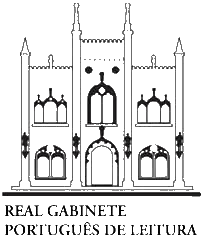“There is a world that breaks itself when i speak”: the emancipation of the female body in The silence, by Teolinda Gersão
DOI:
https://doi.org/10.37508/rcl.2022.n48a492Keywords:
O Silêncio, Teolinda Gersão, Contemporary representations of subjectivity, Contemporary Portuguese Fiction, 20th century, female authorshipAbstract
Finding oneself existing in the world in permanent dialogue, with oneself and with others, is one of the recurring themes in contemporary Portuguese Fiction written by women authors, which signals the construction of subjectivity. The tension between existence and language becomes representative of the metaphysical problems inherent to the human condition, since “we are not satisfied with living: we need to know what we are, we need to understand it in order to tell the other or ourselves what we are becoming.” In O Silêncio, by Teolinda Gersão, the non-existence of love between a man and a woman results from the separation of consciousnesses, the crossing of two worlds that do not touch, and the impossibility of speech.
Downloads
References
ARÊAS, Vilma. Em torno de Teolinda Gersão e Clarice Lispector. Anais do XIV Encontro de Professores Universitários Brasileiros de Literatura Portuguesa. Literaturas de Língua Portuguesa e a Renovação do Discurso Literário. Porto Alegre: CECLIP/CPGL – EDIPUCRS, 1994. p. 66-71.
BARRENTO, João. Ler o que não foi escrito: Conversa inacabada entre Walter Benjamin e Paul Celan. Lisboa: Cotovia, 2005.
CHAUÍ, Marilene. Orelha. In: KELH, Maria Rita. Deslocamentos do feminino: a mulher freudiana na passagem para a modernidade. 2. ed. São Paulo: Boitempo, 2016.
COELHO, Eduardo Prado. A seda do lenço (sobre O Silêncio de Teolinda Gersão). In: A mecânica dos fluidos: literatura, cinema, teoria. Lisboa: Imprensa Nacional-Casa da Moeda, 1984. p. 91-100.
FERREIRA, Nadiá P.; JORGE, Marco A. Coutinho. Lacan, o grande freudiano. 4.ed. Rio de Janeiro: Zahar, 2011. (Psicanálise, Passo a Passo, 56).
GERSÃO, Teolinda. O silêncio. 4. ed. Lisboa: Dom Quixote, 1995.
GOMES, Renato Cordeiro. Modos narrativos e impossibilidade da experiência. Margem. Margenes. Revista de Cultura, n. 1, julho de 2002. Belo Horizonte, Buenos Aires, Mar del Plata, Salvador. p. 90-95.
HUTCHEON, Linda. O sujeito na/da/para a história e sua estória. In: HUTCHEON, Linda Poética do Pós-Modernismo. História. Teoria. Ficção. Rio de Janeiro: Ed. Imago, 1991. p. 203-226.
JARDIM, Antônio. Nietzsche e as questões da arte: do caminho do criador ao caminho do libertar-se. In: CASTRO, Manuel Antônio de (org.). A arte em questão: as questões da arte. Rio de Janeiro: 7 Letras, 2006. p. 158-168.
KEHL, Maria Rita. Deslocamentos do feminino: a mulher freudiana na passagem para a modernidade. 2. ed. São Paulo: Boitempo, 2016.
LAURETIS, Teresa de. “A tecnologia do gênero”. In: HOLLANDA, Heloísa Buarque de (Org.) Pensamento feminista: conceitos fundamentais. Rio de Janeiro: Bazar do Tempo, 2019. p. 121-155.
NUNES, Benedito. O mundo imaginário de Clarice Lispector. In: O dorso do tigre. São Paulo: Ed. Perspectiva, 1969. p. 93-130.
SAFATLE, Vladimir. O circuito dos afetos: Corpos políticos, desamparo e o fim do indivíduo. 2. ed. revista. 3. reimpressão. Belo Horizonte: Autêntica Editora, 2018. (1. ed. Cosac Naif, 2015).
SAFATLE, Vladimir. Maneiras de transformar mundos: Lacan, política e emancipação. 1. ed. Belo Horizonte: Autêntica, 2020.
Downloads
Published
How to Cite
Issue
Section
License
Authors who publish in Convergência Lusíada agree with the following terms:
- Authors retain copyright and grant the journal right of first publication with the work simultaneously licensed under a Creative Commons Attribution-NonCommercial 4.0 International License (CC-BY-NC 4.0) that allows others to share the work with an acknowledgment of the work's authorship and initial publication in this journal.
- Authors may enter into separate, additional contractual arrangements for the non-exclusive distribution of the journal’s published version of the work (e.g., post it to an institutional repository or publish it in a book), with an acknowledgment of its initial publication in this journal.
- Authors are permitted and encouraged to post their work online (e.g., in institutional repositories or on their website) prior to and during the submission process, as it can lead to productive exchanges, as well as earlier and greater citation of published work.

Revista Convergência Lusíada is licensed under a Creative Commons - Atribuição-NãoComercial 4.0 Internacional.









